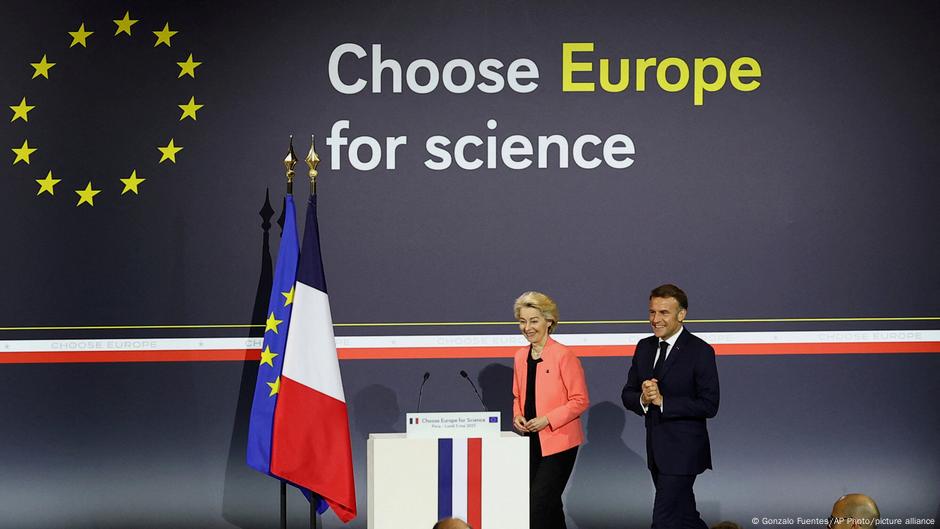EU Pledges €500 Million for Science as U.S. Funding Wanes
Brussels has announced a massive funding package to attract scientists to the European Union. The move comes as US research institutions face funding and job cuts.

On Monday, European Commission President Ursula von der Leyen declared an offer of €500 million ($566 million) in research funds aimed at attracting scientists to relocate to Europe.
The promise comes as US researchers face funding cuts Under President Donald Trump's administration, several member states of the bloc have already indicated their interest in attracting dissatisfied scholars to move to Europe.
What is the EU hoping to achieve?
"We want scientists, researchers, academics, and highly skilled workers to choose Europe," von der Leyen told the "Choose Europe for Science" conference at Paris's Sorbonne University.
"Europe possesses all the necessary elements for scientific progress. We benefit from consistent and substantial funding. Our infrastructure is well-developed. Moreover, we uphold an unwavering dedication to transparent and cooperative research," she noted.
The new package, for the years 2025-27, was intended "to make Europe a magnet for researchers," von der Leyen said.
U.S. universities and research institutions have encountered increasing political and financial strain during the Trump administration, with threats of significant reductions in federal funding.
Although she didn't specifically mention Trump's administration, von der Leyen stated that the erosion of free and open research constituted "a significant error."
von der Leyen cited the case of Marie Curie, a distinguished physicist and chemist from the Sorbonne, who was originally from Poland—then under Russian occupation—but relocated to France for her education and professional endeavors. In 1903, Curie made history as the first female Nobel laureate. She later earned another Nobel Prize in Chemistry in 1911, making her the sole individual to have been awarded two Nobel Prizes in distinct disciplines.
At the same event, French President Emmanuel Macron commented that the scientific policies advocated by former U.S. President Donald Trump—who has criticized France’s leading universities for promoting leftist ideologies and tolerating campus anti-Semitism—were misguided.
"Nobody could have imagined that this great global democracy, whose economic model depends so heavily on free science... was going to commit such an error," he said.
We reject an ultimatum allowing any government to dictate what research we cannot pursue.
Why might US researchers move to Europe?
U.S. research initiatives are at risk of being shut down, tens of thousands of government employees have lost their jobs, and international students worry about potential deportations due to their political opinions.
The French president has already urged researchers from abroad, particularly those from the United States, to "opt for France."
Last month, Macron presented plans for a funding program To assist universities and other research institutions in covering the expenses associated with attracting international scientists to their country.
In early March, Aix-Marseille University located in southern France unveiled a program titled "Safe Haven for Science," aimed at providing support to American researchers facing potential budget reductions.
In early February 2025, Patrick Cramer, who serves as the president of Germany’s Max Planck Society, stated that Applications from the US had increased by at least two times. and in certain instances, even multiplied threefold.
Institutions in Denmark, Norway and Sweden have also made explicit efforts to attract US academic talent.
Edited by: Darko Janjevic
Author: Richard Connor (with AFP, AP, dpa, Reuters)
Post a Comment for "EU Pledges €500 Million for Science as U.S. Funding Wanes"